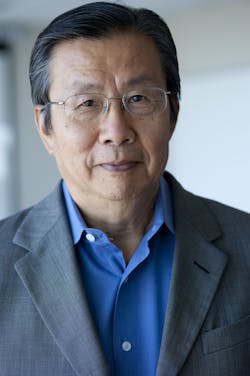
Q: I am a capable optical designer considering consulting on the side. How do I get clients?
A: You are smart to consider consulting on the side because it takes time to get enough clients to make a go of it. I was surprised to learn from a friend who is a laser business consultant that it takes three to five years to reach an income level equivalent to a full-time salary and that it takes a couple hundred clients to have a sustainable income. He now consults broadly for just about any high-tech business to broaden his client base.
I have found that there are many optics designers, but only a few are really worth their weight in gold. So, if you are truly outstanding, you can indeed make a living doing it. What I would do, if I were in your shoes, is to hang my “shingle out” by activating all my optics/laser industry and technical-society contacts, and advertise my services in trade magazines like Laser Focus World. Given that optics are pervasive, you are more likely to find business working with people who are not in optics. Therefore, you may want to get plugged into communities like mechanical-engineering societies and professional-consultant associations. You can also broaden the scope of your business by defining your service as being helpful to clients. Some consultants provide introductions to venture capitalists (VCs) and potential strategic allies to help their clients succeed, which in turn creates jobs for the consultant.
Q: I am entering a business partnership with a friend who has turned out to be a tough negotiator. How do I proceed?
A: People have different styles. Some people like to spell out everything clearly, dotting all the i’s and crossing all the t’s before entering a business deal. Being thoughtful and thorough provides a good starting point. On the other hand, if your potential partner is negotiating with greed or being unreasonable, then it is likely to be the beginning of a bad partnership. My personal guiding principle is to “choose my friends carefully.” I won’t work with anyone I can’t trust 110%; it is not a productive use of my energy to be constantly looking over my shoulder. People enter into bad relationships because they can’t give up the benefits in front of them and the tradeoff they miss is “opportunity cost”-in this case, a better partnership with someone else. So, proceed with caution, and consider the alternatives.
Q: Job openings I have found are mostly in mundane industries. What are the hot areas that might be the next bubble?
A: This reminds me of a bumper sticker that says something like “Lord, please give me another bubble.” No one has the perfect crystal ball, but people with opinions say bubbles will invariably occur, with major ones occurring in every generation, which is to say every 20 years. I believe that small bubbles occur all the time in areas that are fashionable on Wall Street or in individual companies with stellar performance. In fact, that’s what we VC’s do-look for or work to create those big opportunities.
You can’t afford to sit around waiting for bubbles to occur, but it is understandable that you want to maximize your opportunities. Mundane or not, companies in our industry that are doing well are in traditional applications of lasers, so that’s where stable jobs are. Keep in mind that good jobs are usually provided by companies that are either producing or are likely to be producing something really useful. Jobs with higher risk/reward are likely to come from companies that are pursuing new applications that are yet to be proven; therefore, your own personal risk profile or the risk you can afford to take is a boundary condition. Based on the industry experts I talked to, hot applications are more likely to occur in areas in which technologies intersect, and that means when photonics meets bio- and nanotechnologies.
About the Author
Milton Chang
MILTON CHANG of Incubic Management was president of Newport and New Focus. He is currently director of mBio Diagnostics and Aurrion; a trustee of Caltech; a member of the SEC Advisory Committee on Small and Emerging Companies; and serves on advisory boards and mentors entrepreneurs. Chang is a Fellow of IEEE, OSA, and LIA. Direct your business, management, and career questions to him at [email protected], and check out his book Toward Entrepreneurship at www.miltonchang.com.
